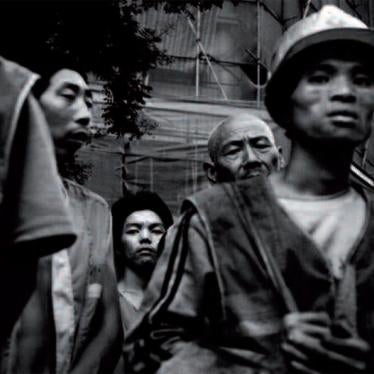(New York) - China's National People's Congress (NPC) should abolish the discriminatory hukou, or household registration system, which determines where citizens can live and whether they can have access to the most basic human services, Human Rights Watch said today. The restrictions are especially harmful to the country's estimated 150 million migrant workers. The congress, which meets annually for about two weeks and is attended by more than 3,000 delegates, will begin on March 5, 2009.
"The hukou system has always been unfair to migrants, but the economic crisis makes it downright punitive by denying many long-term migrants who have literally built the cities they live in a social welfare net when it is needed most," said Sophie Richardson, Asia advocacy director at Human Rights Watch. "If the National People's Congress is really serious about mitigating the human impact of the economic crisis, abolishing this form of institutionalized discrimination should be a top priority."
The hukou system identifies individuals at birth as either urban- or rural-residence permit holders, determined by their parents' hukou status. The assigned status is extremely difficult to change for those with lower education and income levels, creating in effect a two-tier system. Hukou status can dramatically affect an individual's access to public services.
Migrant workers from the countryside, even if they are employed, are chronically denied social welfare protection such as the unemployment, medical, and educational benefits that are guaranteed to registered urban residents. That discriminatory system has increased the vulnerability of millions of migrant workers left jobless in recent months due to mass layoffs in export manufacturing. The lack of comparable and secure social welfare benefits in rural areas creates a vicious cycle in which impoverished rural workers seek urban jobs, to be able to afford the fees for basic medical services, food, and education for their families.
In November 2007, the central government announced that it planned to "[g]radually commit to giving migrant workers in ‘stable' employment the opportunity for permanent residency status," but provided no details or timetable, nor did it offer to extend such efforts to working migrants in less-predictable employment situations. In January 2008, Ma Liqiang, the deputy secretary general of the National Development and Reform Commission, an official policy-formation organ of the Chinese government, indicated that the restrictions of the hukou system would be eliminated by 2020, but provided no roadmap toward that goal.
Migrant workers - generally low-skilled laborers who come from China's interior provinces to the coastal cities - have been one of the main drivers of the country's dramatic economic growth rates over the past three decades. Migrants often work in unsafe conditions, are denied basic social services, and suffer from rampant wage exploitation. Chinese government estimates indicate that up to 20 million migrants have lost their jobs since the start of the crisis in late 2008. A recent study by China's Tsinghua University suggests up to 50 million migrant workers will lose their urban jobs in 2009 if the economic downturn continues.
In recent months, the government has relaxed hukou restrictions on better-educated and wealthier migrants, but has made no commensurate improvements for migrant laborers. On January 23, China's cabinet, the State Council, issued a directive allowing cities, with the exception of Beijing, Shanghai, Tianjin, and Chongqing, to extend hukou benefits to migrant college graduates. The Shanghai municipal government also announced in January an initiative to extend hukou benefits to a select group of migrants including those who "pay high taxes or insurance rates or have significant investments" (http://www.chinadaily.com.cn/china/2009-02/24/content_7507915.htm ).
NPC abolishment of the hukou system would dovetail with other recent moves by the congress to address the interests of migrant workers, including approval of the Labor Contract Law of the People's Republic of China, which went into effect on January 1, 2008. The law is designed to reduce the wage exploitation and abuse of all workers, including migrants, by requiring employment contracts that define workers' rights and obligations. The law also requires employers to provide a copy of work contracts to their employees so that workers have a written foundation for legal redress in cases of contractual disputes.
"Extending hukou rights to only a small minority of ‘elite' migrants, while ignoring the injustices the system imposes on the majority of low-income manual workers with minimal education is hypocrisy, not progress," Richardson said.






